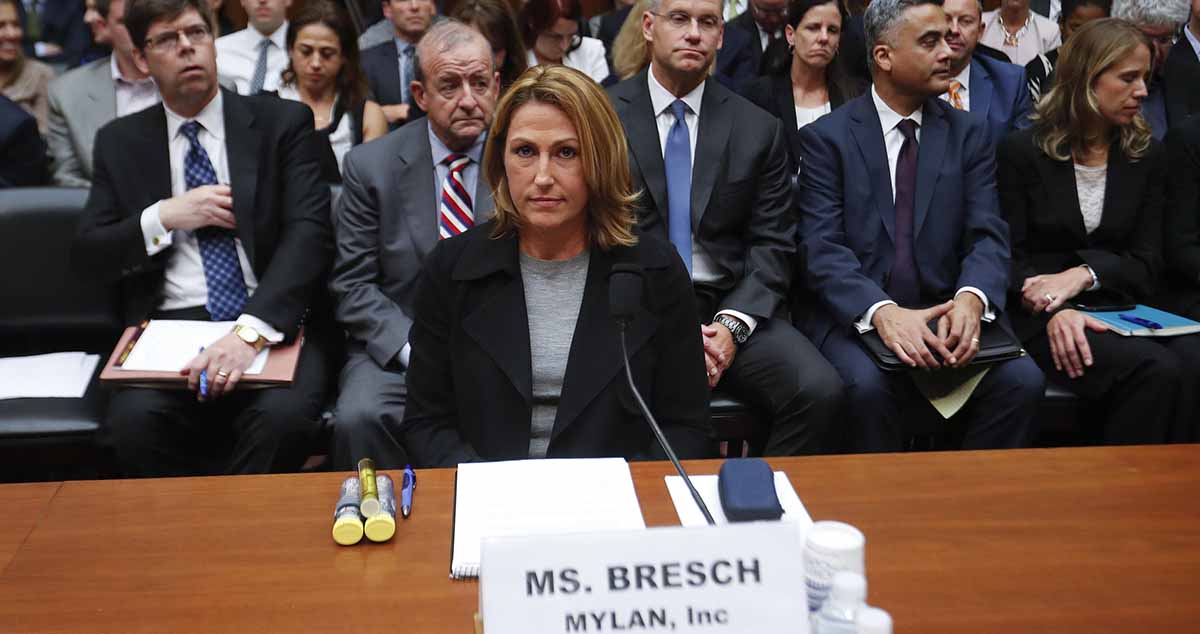US District Judge Daniel Crabtree ruled yesterday that numerous lawsuits against the marketer and manufacturer of EpiPen may proceed as a nationwide class-action under a federal racketeering statute. His ruling also allows consumers to sue for damages under state antitrust laws.
The ruling opens the door for millions of consumers to join the suit against Mylan NV, marketer of EpiPen, and Pfizer, the exclusive manufacturer.
There were a number of principal allegations brought by the consolidated suits.
Mylan, Pfizer, and their affiliates were alleged to have schemed to monopolize the epinephrine auto-injector market by raising the price of EpiPen 500%, then offering kickbacks to pharmacy benefit managers and insurers in return for them not reimbursing competing products.
The suits also alleged that Mylan and Pfizer sought and acquired patents for small changes to the EpiPen design, thus allowing them to forestall the introduction of competing products with sham patent litigation.
They sued Teva, a pharmaceutical company seeking to introduce their own version of EpiPen, and ultimately reached an agreement with the company in 2012. The suits allege the agreement was unlawful because it required Teva to delay the introduction of their competing product for three years.
Mylan is also alleged to have provided free or discounted EpiPens to schools in exchange for exclusive contracts with the company that barred competitors.
Judge Crabtree’s ruling allows all persons and entities in the US who paid or provided reimbursement for EpiPens as of August 24, 2011, to sue for damages under the federal Racketeer Influenced and Corrupt Organization (RICO) Act. RICO allows plaintiffs to recover triple damages.
The ruling also allows all persons and entities who paid or provided reimbursement for EpiPens as of January 28, 2013, to sue under the antitrust laws of 17 different states, including Kansas, that allow indirect purchasers to pursue antitrust claims.
Mylan acquired the rights to market and sell EpiPen in 2007 when the device sold for $100. The price of EpiPen under Mylan skyrocketed to $600 in 2016 despite the cost of epinephrine — the drug delivered by EpiPen — remaining stable at about $1 per dose.
Mylan has settled a number of suits related to EpiPen in recent years.
One involved a $465 million payment to the federal government for misclassifying EpiPen as generic, allowing them to overcharge Medicaid by $1.3 billion. Another, settled for $30 million with the Securities and Exchange Commission, alleged that Mylan failed to disclose to investors that the government was investigating the company for the Medicaid irregularities.
Mylan’s CEO Heather Bresch was also called to testify before a US House of Representatives committee investigating the meteoric rise in the price of EpiPen in 2016.
SnackSafely.com will report on how consumers can join the class-action suits when information becomes available.
- A Kansas City, Kansas, Ruling Allows Millions To Join A Lawsuit Over The High Cost Of EpiPens — National Public Radio
- Mylan to Settle EpiPen Overpricing Case for $465 Million — New York Times






